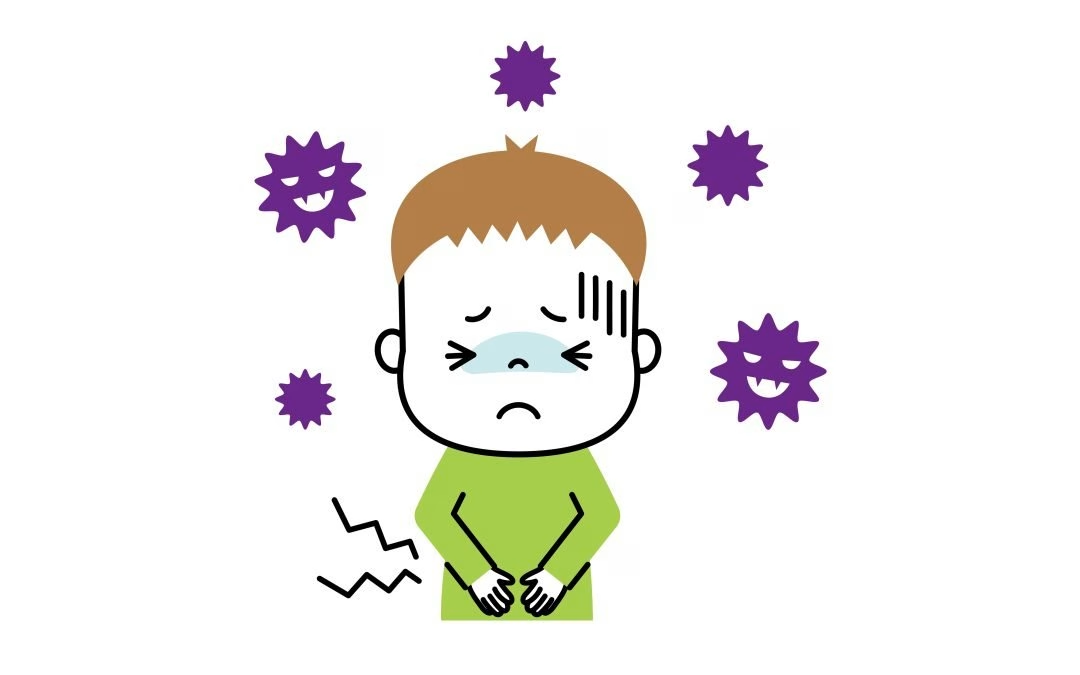
Learn about norovirus and preventative steps to help keep you safe. Visit our urgent care in Mooresville for proper care and treatment.
Winter in Mooresville brings a slower pace and more time spent indoors – whether you’re cozying up after a day by Lake Norman or catching a movie downtown. But while the season has its perks, it also sets the stage for norovirus to spread more easily.
Norovirus is a common winter illness that causes sudden stomach problems and spreads fast through schools, workplaces, and homes. So, what exactly is norovirus, and how can you lower your chances of getting sick? Here’s what to know.
How Does Norovirus Spread?
Norovirus is known for its ability to spread quickly and persist in the environment. It is transmitted through:
- Direct contact with an infected person – Shaking hands, sharing food, or being in close quarters with someone who has norovirus increases the risk of infection.
- Contaminated food or water – Consuming food prepared by someone infected with norovirus or drinking contaminated water can lead to illness.
- Touching contaminated surfaces – The virus can survive on surfaces for days. If you touch a contaminated doorknob, countertop, or utensil and then touch your mouth, you can become infected.
- Airborne particles – Vomiting can release virus particles into the air, which can then land on surfaces or be inhaled by others nearby.
Given how easily norovirus spreads, proper hygiene and sanitation are essential in stopping outbreaks.
What Are the Symptoms of Norovirus?
Norovirus symptoms typically develop within 12 to 48 hours after exposure and can last one to three days. Common symptoms include:
- Sudden onset of nausea and vomiting
- Watery diarrhea
- Stomach cramps
- Low-grade fever
- Fatigue and muscle aches
- Dehydration (especially in severe cases)
While norovirus is usually not life-threatening, dehydration can lead to serious complications requiring medical intervention. If symptoms persist or worsen, seeking urgent care can help with symptom relief and hydration support.
How Can We Prevent Norovirus?
Preventing norovirus involves practicing good hygiene, food safety, and proper sanitation. Here are some key steps to reduce the risk of infection:
- Wash your hands thoroughly – Use soap and water for at least 20 seconds, especially after using the restroom, before eating, and after handling potentially contaminated objects.
- Disinfect surfaces regularly – Norovirus is resistant to many common disinfectants. Use a bleach-based cleaner to sanitize high-touch surfaces like kitchen counters, doorknobs, and bathroom fixtures.
- Avoid preparing food when sick – If you have norovirus, wait at least 48 hours after symptoms stop before handling food for others to prevent spreading the virus.
- Cook food thoroughly – Heat kills norovirus, so ensure shellfish, meats, and other foods are properly cooked.
- Wash fruits and vegetables – Rinse fresh produce under running water to remove any potential contaminants.
- Stay home when sick – Avoid work, school, or public places until at least 48 hours after symptoms have resolved.
By taking these precautions, individuals can help reduce the spread of norovirus and minimize outbreaks within their communities.
When Should You Seek Medical Care for Norovirus?
Most people recover from norovirus on their own, but medical attention is necessary if symptoms become severe. Seek urgent care if you experience:
- Signs of severe dehydration, such as dry mouth, dizziness, or infrequent urination
- Persistent vomiting or diarrhea lasting more than three days
- Blood in stool or vomit
- Severe abdominal pain or fever over 102°F
AFC Mooresville is available to provide medical support, including hydration treatment and symptom relief, to help you recover faster.
Norovirus is a common but preventable illness that spreads quickly through contaminated food, water, and surfaces. Practicing good hygiene, proper food handling, and sanitation measures can significantly reduce the risk of infection. If you or a loved one experience severe symptoms, visit AFC Mooresville for prompt medical assistance. By staying informed and taking preventive steps, we can all work together to limit the impact of norovirus in our communities.


